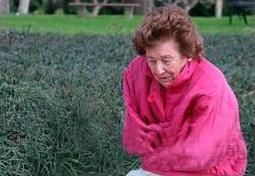Since ancient civilization in Middle East, women have been obliged to draw water from well, oasis, springs, and rivers. The Chaldean, Egyptian, Israelite, and Palestinian women had walked miles to fetch water for food preparation, bath, household chores, and livestock.
Nowadays, Sub-Saharan and Uganda women continue to follow the tradition of carrying jars and pulling ropes from well. Arab women still walk miles to collect water... from contaminated rivers, cisterns, and ponds.
According to PlayPumps International, African women and young girls have to walk 5 miles to collect 5 gallons of water each day. Worse, the water contains pathogenic microorganisms that can cause waterborne diseases such as Amoebiasis, E.Coli infection, cholera, dysentery, typhoid fever, and Hepatitis A.
These protozoal, bacterial, and viral infections have caused an average of 1.8 million deaths each year. Most victims are children who have no developed immune system to fight intestinal parasites. At least 88 percent of such human loss is attributed to unclean water and poor sanitation practices, as reported by World Health Organization.
What happened to women who are compelled by culture to provide living water?
Women who supposed to draw beneficial water become the culprit for such human loss. Culture has questioned women on their inability to provide good water for their husbands and children.
While women suffer such blame, men still harbor patriarchal role in leading the community on how to solve such "problem". Worse, women are not included in community meetings and implementation of safe water program, where they should have raised out concrete reasons for such loss.
The report of Dr. Consolata Kabonesa on Gender Gap in Water Resource Management has showed that only one woman out of five men has led in the Ministry of Lands, Water and Natural Resources in Uganda. Developing countries such as Pakistan, Iran, and Niger still have water management committees predominantly composed of men.
Where are the women to assert solutions?
Sadly, in most Arab nations, women are left at home, preparing food and tending children; while husbands take the role of food production and leadership. Men commune with community officers to resolve water source problem and implement strategies to keep women providing beneficial water.
What do these men know about the hazards of the water in the community, the difficulty of drawing water, the miles spent for walking, and the harassment experienced along the desert road? Eras of experience have taught women on issues involving safe water, and women have earned the right to the seats in a water resource management committee.
Women throughout the years have earned what culture and societal norms have imposed on familial and gender roles. Women do earn the right to take a stand on their primary purpose in community—to provide safe water.
Women's role in today's water-concerned society
The World Health Organization (WHO) and UNICEF have teamed up in a Joint Monitoring Programme (JMP) for Water Supply and Sanitation. The charity: water project opens new seats for women to lead as water resource managers in their own communities. The challenge is given to women to consolidate the efforts of both men and children to open new sources of clean water.
Project charity: water aims to strengthen the arms of women in leading their community in constructing sanitation infrastructures. It also strives to empower women in teaching members of society the importance of safe water production and hygienic practices. The result can yield a reorientation on women leadership among developing countries.
What can you do to empower women?
Since ancient times, women and female children have lost 40 billion hours to fetch water. These hours should have been spent for pursuing economic opportunities, availing of education, and shaping their own future.
Today, a $20 dollar donation can provide 20 years of clean water supply. This amount can help women impart change in the community and rediscover their worth in the society. Every dollar will be spent for creating safe water system, which can eradicate the footprints of harassed and killed women in the desert.
Why women need to take charge of water management? It's because women possess the nature's key in springing up new life for the community.
Nowadays, Sub-Saharan and Uganda women continue to follow the tradition of carrying jars and pulling ropes from well. Arab women still walk miles to collect water... from contaminated rivers, cisterns, and ponds.
According to PlayPumps International, African women and young girls have to walk 5 miles to collect 5 gallons of water each day. Worse, the water contains pathogenic microorganisms that can cause waterborne diseases such as Amoebiasis, E.Coli infection, cholera, dysentery, typhoid fever, and Hepatitis A.
These protozoal, bacterial, and viral infections have caused an average of 1.8 million deaths each year. Most victims are children who have no developed immune system to fight intestinal parasites. At least 88 percent of such human loss is attributed to unclean water and poor sanitation practices, as reported by World Health Organization.
What happened to women who are compelled by culture to provide living water?
Women who supposed to draw beneficial water become the culprit for such human loss. Culture has questioned women on their inability to provide good water for their husbands and children.
While women suffer such blame, men still harbor patriarchal role in leading the community on how to solve such "problem". Worse, women are not included in community meetings and implementation of safe water program, where they should have raised out concrete reasons for such loss.
The report of Dr. Consolata Kabonesa on Gender Gap in Water Resource Management has showed that only one woman out of five men has led in the Ministry of Lands, Water and Natural Resources in Uganda. Developing countries such as Pakistan, Iran, and Niger still have water management committees predominantly composed of men.
Where are the women to assert solutions?
Sadly, in most Arab nations, women are left at home, preparing food and tending children; while husbands take the role of food production and leadership. Men commune with community officers to resolve water source problem and implement strategies to keep women providing beneficial water.
What do these men know about the hazards of the water in the community, the difficulty of drawing water, the miles spent for walking, and the harassment experienced along the desert road? Eras of experience have taught women on issues involving safe water, and women have earned the right to the seats in a water resource management committee.
Women throughout the years have earned what culture and societal norms have imposed on familial and gender roles. Women do earn the right to take a stand on their primary purpose in community—to provide safe water.
Women's role in today's water-concerned society
The World Health Organization (WHO) and UNICEF have teamed up in a Joint Monitoring Programme (JMP) for Water Supply and Sanitation. The charity: water project opens new seats for women to lead as water resource managers in their own communities. The challenge is given to women to consolidate the efforts of both men and children to open new sources of clean water.
Project charity: water aims to strengthen the arms of women in leading their community in constructing sanitation infrastructures. It also strives to empower women in teaching members of society the importance of safe water production and hygienic practices. The result can yield a reorientation on women leadership among developing countries.
What can you do to empower women?
Since ancient times, women and female children have lost 40 billion hours to fetch water. These hours should have been spent for pursuing economic opportunities, availing of education, and shaping their own future.
Today, a $20 dollar donation can provide 20 years of clean water supply. This amount can help women impart change in the community and rediscover their worth in the society. Every dollar will be spent for creating safe water system, which can eradicate the footprints of harassed and killed women in the desert.
Why women need to take charge of water management? It's because women possess the nature's key in springing up new life for the community.









